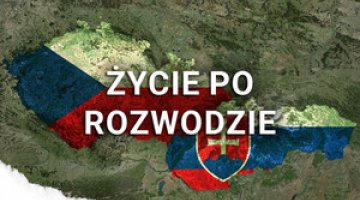The Czech Republic opts for coal and nuclear power
The use of coal deposits, the development of the nuclear power sector and the diversification of raw material import sources and routes are the key guidelines of the raw material and energy security policy adopted by the Czech government on 17 August. In this document, which is to serve as the basis for the development of an overall concept for the next 20 years, the government is appealing for the prompt construction of new blocks in existing nuclear power plants and is considering building a new plant. The emphasis on the use of the country’s brown coal deposits and the development of the nuclear power industry will probably translate into a tough stance from the Czech Republic during negotiations on the EU’s energy and climate policy.
The new challenges
The raw material and energy security concept to be presented next year is to cover a broader vision for a raw material policy and will also take into account raw materials which are not linked to the energy sector but are of strategic significance for the economy. The Czech government, assuming that the EU is not and will not be able in the immediate future to “guarantee security to its member states” in this area, wants to focus more on ‘raw material diplomacy’ (for example in the Balkans and the Caucasus) and intends to defend the right of member states to determine their own energy balance by themselves.
According to the government’s estimates, power plants with a total capacity of approximately 4,000 megawatts will have to be closed within the next 10–15 years in the Czech Republic. These are to be replaced with modern coal and gas power plants and new blocks at nuclear power plants. The government appreciates the role of renewable energy sources (at present, they account for approximately 6% of the country’s energy balance) which capitalise on local potential, but also draws attention to the problems related to their stable inclusion in the existing transmission infrastructure. Over the past few years, the rapid development of solar power plants - which was stimulated by the system of state subsidies and high guaranteed energy purchase prices – has posed serious problems to the power transmission operators. This trend, expensive for the state, slowed down as state support was reduced last year.
The development of the nuclear energy industry
The Temelin and Dukovany nuclear power plants are still set to be an essential source of energy for the Czech Republic (see Appendix). The document appeals for the pending tender for the development of existing power plants to not be extended (the government is to choose the winner of this tender in two years’ time) and for the construction of a new power plant to be considered. The proposed location mentioned is Blahutovice, which is situated 60 km away from the Polish border. One of the suggested ways to improve energy security is to increase the production from Czech uranium deposits. The government intends to treat the tender for the development of the power plants as an opportunity to build a facility for nuclear fuel production in the Czech Republic. The proposal to build a fuel cycle in the Czech Republic is included in the offer submitted by the consortium led by Russia’s Atomstroyexport. However, the Czech government has thus far been cautious about projects which entail an increase in the share of Russian companies in the Czech energy market. Thus the government’s interest in building a nuclear fuel cycle can be seen as an encouragement for the other firms participating in the tender (the American Westinghouse and the French Areva) to enhance their respective offers.
Coal has a strong position
The dependence of Czech metallurgy on hard coal and the heating industry’s dependence on brown coal is making the Czech government more inclined to keep production at domestic coal mines at a high level. For the time being, the Czech Republic’s hard coal exports are three times the size of its imports. However, since domestic production is decreasing, more coal will be imported first of all from Poland, and also from Ukraine and Russia. Brown coal production will also go down in the next few years due to local ecological limits. It is estimated that brown coal deposits will reach 850 million tonnes in the protected areas, which have made the legitimacy of the limits the subject of a heated political debate for years in the Czech Republic. The governmental document does not resolve this issue and envisages a gradual decrease in coal exports to Slovak power plants and an increase in imports from German mines. The declining domestic production and the risk of coal price fluctuations will encourage Czech firms to buy shares in deposits and production companies. Judging from their acquisition activity so far, they are likely to search for such opportunities above all in Poland and Germany, and also in Ukraine and the Balkans.
The diversification of supply sources and routes
The document praises the actions taken by the governments so far, resulting in a reduction of the Czech Republic’s dependence on oil and gas imports from Russia (at present, approximately 30–40% of oil and gas are imported from other countries) and suggests a further diversification of the sources and routes of raw material supplies. One of the most recent ideas to serve this purpose is the inclusion of the planned Czech-Austrian gas interconnector, Lanzhot–Baumgarten, in the Nabucco project. The Czech government has promised to seek support for this concept from the Visegrad Group, which has been collaborating for the creation of a North-South gas corridor.
Swimming against the current
The direction set by the Czech government is to a great extent the reverse of the trend predominant within the EU, which the opposition has been reproaching the government for. The new document has been strongly criticised by ecological circles, in whose opinion the government’s policy will turn the Czech Republic into a “dirty museum of outdated energy technologies”. However, individuals who are sceptical about the efficiency of the government’s support for the use of renewable energy sources are predominant among the decision-makers responsible for the energy sector. Most of them are convinced that it is necessary to lift the local coal production limits and to develop the nuclear energy sector. Even more radical views regarding this issue are being put forward by President Vaclav Klaus. These views are shared by a majority of Czechs, who still support nuclear energy despite the Fukushima disaster.
The energy balance of the Czech Republic in 2010:

Source: Ministry of Industry and Trade of the Czech Republic





